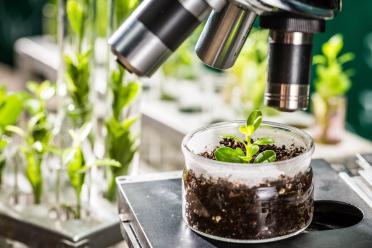
The two projects, which are open to applicants anywhere in the world, will address fundamental research questions and contribute to national and global efforts to conserve biodiversity, discover novel natural products and to breed new crops.
The John Innes Foundation is a charity dedicated to advancing the acquisition and application of knowledge about plants and microbes for societal, environmental and commercial benefit. They will co-fund two four-year PhD posts at the Earlham Institute, focusing on data-driven plant science.
The projects address urgent scientific questions around food security and plant health. The first will seek to understand the genetic traits that improve wheat crop yields in challenging environments. The second maps out the pathways some plants use to produce naturally-occurring metabolites that can attract pollinators, ward off pests and even be used to develop medicines.
Peter Innes, Chair of the John Innes Foundation, said: “Plant science is fundamental to combating many of today's greatest and most threatening challenges. The John Innes Foundation has been helping to fund plant research for more than a hundred years and is committed to doing still more in the future.
“By helping to fund these important appointments at the Earlham Institute, our hope is that the use of cutting edge data technology can offer the opportunity for real and speedy advances in our understanding of, and in our use of, the planet's precious natural resources.”
As well as supporting cutting-edge research projects, the PhD Fellowships aim to address the skills gap seen in the limited pool of scientists with the necessary understanding of data-science and plant biology. The Earlham Institute will offer unique training and support at the interface of computational and molecular plant biology as a fundamental part of the studentships.
Professor Neil Hall, Director of the Earlham Institute, said: “We’re incredibly grateful to the John Innes Foundation for supporting these opportunities. The projects will address some fundamental questions by marrying together traditional plant science with the latest computational techniques.
“The number of scientists skilled in data science and plant biology is extremely limited and we know this skills gap is a global problem. These PhD Fellowships will contribute to an emerging field of science that has the potential to make significant breakthroughs on some of the biggest issues facing society today.”
To find out more and apply for the John Innes Foundation PhD Fellowships visit www.earlham.ac.uk/studentship-vacancies
To find out more about the John Innes Foundation, visit www.johninnesfoundation.org.uk


